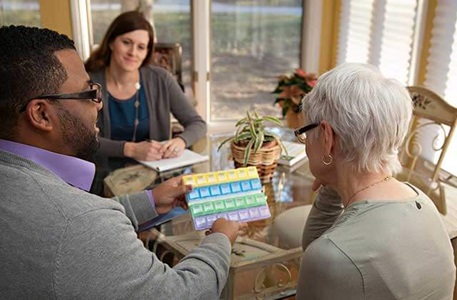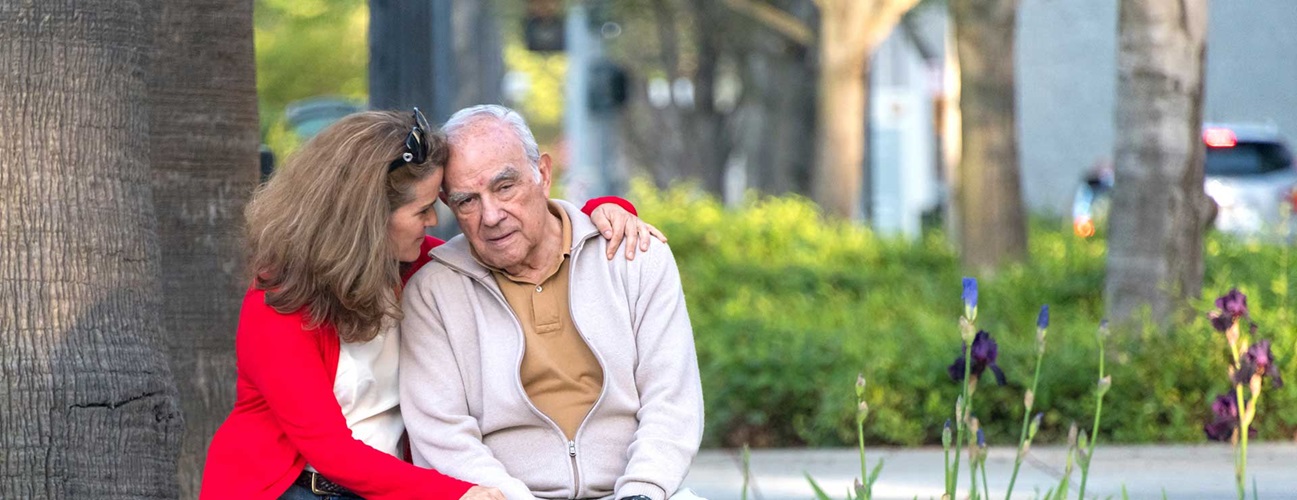Tough (But Important) Conversations
Two thirds of Americans don’t have a living will or advance directive outlining their wishes for end-of-life care. Ninety percent of older Americans hope to stay in their own home as they age—yet one in four already has difficulty with everyday needs like bathing, dressing and getting around the house.
“Helping older relatives plan for the future means having important, yet sometimes difficult, talks,” says Johns Hopkins geriatric medicine expert Alicia Arbaje, M.D., M.P.H. “It’s not easy to talk about topics like aging and illness and even dying, but having these conversations can give everyone peace of mind.”

These steps can help you approach tough topics with older loved ones and start a productive conversation.
Start early.
“It’s easier to talk about issues like advance directives or moving from your own home into a retirement community, assisted living or a nursing home when you’re not in the middle of a crisis,” Arbaje says. “You’ll have more options and more time to think, and be able to come to a better decision.”
Do your research.
Learn about the subject before you bring it up. “If you’re going to discuss advance directives, check the organization Aging with Dignity’s Five Wishes website and material . This program will help your loved one name a person to make health care decisions for them when they cannot and help them discuss their wishes for medical treatment,” Arbaje says. “Another good resource is the American Geriatric Society’s website , which has a section on making end-of-life wishes known.”
Check into local housing options by talking with your county’s Office on Aging.
Family Caregiver Toolbox

One of the challenges faced by those who have been called to care is taking good care of themselves. Learn how to manage caregiver stress and take better care of yourself.
Start small.
“Sitting your parent or another loved one down for the ‘big talk’ can backfire. He or she may feel cornered or as if you’re telling them what to do,” Arbaje says. Instead, bring it up casually—and talk about how you feel. “You might talk about a neighbor who’s moved to a retirement community or mention a news story about a living will,” she suggests. “You might say, ‘Mrs. Jones really likes being around other people.’ Or ‘I just read an article about end-of-life care. It sounds like a good idea to tell people what you want.’” Invite your loved one to share thoughts and feelings too.
Johns Hopkins Care at Home

We provide high quality, individualized care for patients of all ages where you feel most comfortable – your home or community. Our services and equipment are designed to help you regain and retain a level of independence.
Find out what matters to your loved one.
“The older person needs to feel they’re in control—that they’re making the decisions,” Arbaje says. “If you’re discussing a housing change, find out what’s important—is it saving money, staying near friends, bringing the cat along, being able to cook Sunday dinner? Knowing what matters will help you present options based on your loved one’s goals and values. This is true for advance directives too.”
Try It Talk About Driving
Another tough conversation many families face is whether an older loved one should continue to drive. “Driving is independence for many people, but safety comes first,” says Johns Hopkins geriatric medicine expert Alicia Arbaje, M.D., M.P.H. “You can ask your loved one’s doctor to help by bringing it up.”
Called to Care® | A Program For Family Caregivers
We recognized the importance of family caregivers, as well as the physical and emotional stresses that can accompany caregiving. Hear how Johns Hopkins Bayview prepares and supports those caring for loved ones with health-related needs or limitations.






